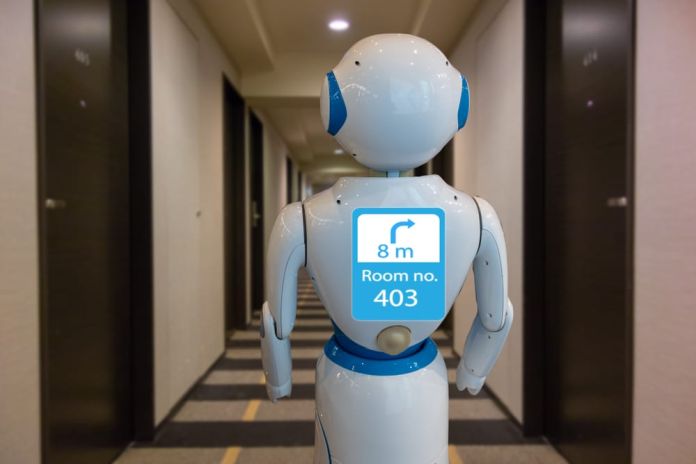By PYMNTS
Coming to a hotel near you: robots that clean your room and deliver everything from a late-night room service meal to extra towels and toothpaste.
The coronavirus pandemic is accelerating a trend toward automation in hotels across the country, with major chains now relying on robots to clean rooms and deliver items to guests as they scramble to cut down on potentially unsafe contact between staff and guests.
The trend has now caught the attention of the media. Robot-making companies are reporting an upsurge of orders from hotel chains and other customers, according to The Wall Street Journal, the latest in a number of news outlets to run stories on the hotel robots.
(Karen Webster delved into the trend in an interview this spring with Gal Goren, chief executive officer of robotics company Temi.)
A number of Marriott and Hilton hotels in California are at the leading edge of the robot revolution, with the Hotel Trio in Healdsburg in Northern California sparking a mini media frenzy when it sent out a press release touting Rosé, its new “social distancing robot ambassador.”
While the Rosé first began rolling down the corridors of the Marriott hotel since it opened in July of 2018 in Sonoma County, the three-foot-tall android has since shifted from a novelty item to a necessity amid the pandemic, according to the hotel’s general manager, Scott Satterfield.
Rosé now delivers everything from pillows to pet treats to groceries and towels to the rooms of hotel guests, flashing a digital message, “I’m on a guest delivery” as she rolls to her destination.
“For guests who prefer contactless deliveries, Rosé provides them with peace of mind, as she can deliver items to their suite,” Satterfield said in a press release.
Other hotels are using robots to assist their housekeeping staff with the more intensive cleaning routines that are now required amid the pandemic.
This past spring, a Houston hotel added two robots that emit virus-killing ultraviolet rays to disinfect rooms. The robots roll in after the housekeeper leaves to zap any germs that might be lingering on surfaces, according to Cleaning & Maintenance Management, a trade publication.





